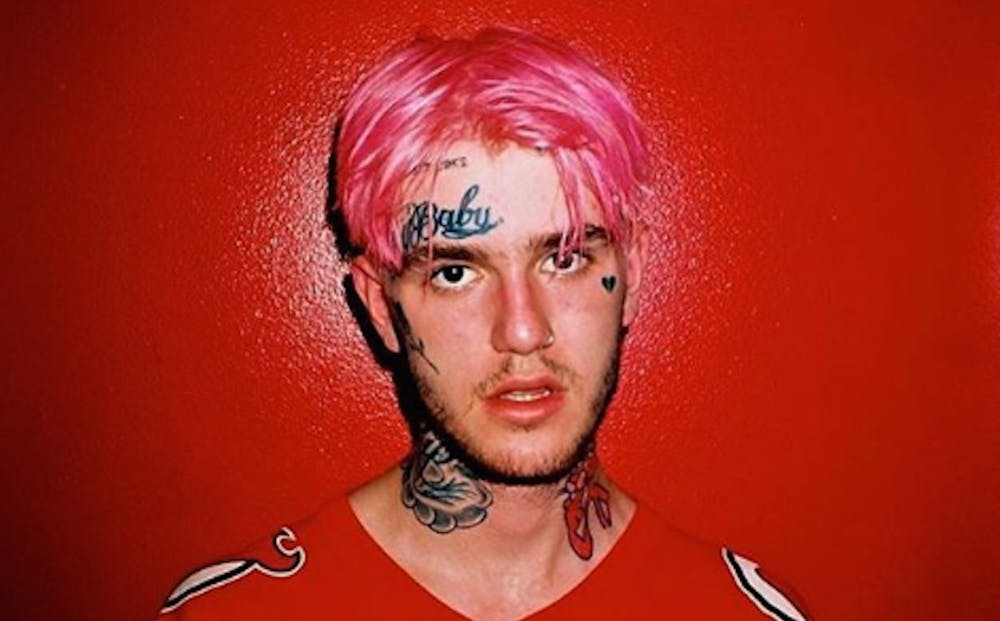Gustav Åhr — better known by his stage moniker Lil Peep — was just 21 years old and on the cusp of widespread fame. A rapper with the heart of an early-2000s emo kid, his distinctive sound combined trap beats and emo melodies with painfully honest lyrics about depression, failed relationships and indulgent drug use. In the span of four tapes and a studio album, he carved out a niche for himself in the underground rap world alongside his peers in Gothboiclique, the alternative rap collective to which he belonged.
Peep was pioneering an entirely new genre of music — making what he wanted to make and releasing it for anyone who cared to listen.
In an interview with Montreality in April 2017, he said, “I’m not trying to ride a wave. I’m trying to make my own wave.”
With a look as individual as his sound, Peep was staking his claim as a fashion icon as well — walking in runway shows, being photographed for magazines around the world, and developing his own clothing line, NO SMOK!NG. His Cry Baby and anarchy circle-A face tattoos became emblems that are now emblazoned on the bodies of countless fans whose dedication to Peep is stronger today than it has ever been.
Peep’s musical genius and potential as a cultural icon was cut short when he suffered a fatal overdose on Nov. 15, 2017. Although his lyrics were heavily laced with depressive tones and suicidal imagery, his death came as a shock to fans and friends. During the painful months that followed, fans came to take solace in his messages still unheard: the extensive reserve of music Peep recorded but never released.
Excited by Peep’s debut studio album he produced with Dylan Mullen (known as Smokeasac), “Come Over When You’re Sober, Pt. 1,” grieving fans worried they would never hear its intended counterpart. While publicly grieving the loss of his friend, Smokeasac announced that, with the blessing of Peep’s family, he would continue with plans to produce “Come Over When You’re Sober, Pt. 2” from Peep’s collection of recorded vocal tracks.
This highly-anticipated posthumous release came on Friday — just eight days after Peep’s would-be 22 birthday, and six days before the one-year anniversary of his death. Although technically its complement, COWYS and COWYS2 are sonically quite different; COWYS2 showcases Peep’s singing more than his rapping — though it has never been easy to differentiate the two.
COWYS2 opens with “Broken Smile (My All),” a haunting, almost-ballad sung in Peep’s signature emo-infused style that sets the tone for the rest of the album. Most of the songs between the opening track and the closing bonus track, “Sunlight on Your Skin feat. ilovemakonnen”, prove difficult to listen to after Peep’s passing. Although lines about depression and suicide have always riddled his music, they feel much heavier and significant since his death — eerily predictive of his end. It was much easier to listen to Peep rap about taking his life when he was playing shows and smiling at cameras. But the candidness and transparency with which he spoke about his pain is what made him relatable to so many people. Where we’re often expected to spackle our sorrow and paint over our struggles, Peep leaned into them and exposed them for what they were.
A stand-out track on the album, “Fingers” is entirely a love song, which is not something we see often from Peep. Peppered with a healthy dose of self-deprecation, “Fingers” is a vow of devotion and a simultaneous disbelief of worth. Peep promises, “I will be the first there. And I’ll be the last there,” but he also claims, “I am a nightmare. You don’t wanna know me,” and wonders, “why don’t you hate me?” “Fingers” falls into Peep’s catalogue alongside fan-favorite “Star Shopping,” released in 2015 — another love song in which Peep can’t help but see his own imperfections: “I know that I’m not really worth it. If you give me time, I can work on it.”
Fans’ reception of the album has proven divisive. For some, the album feels too far removed from something Peep would have made. It features none of his beloved references to Gothboiclique, no producer or collective tags and is devoid of his traditional sing-spoken rap verses. Smokeasac has taken the brunt of this criticism — he took to Twitter to report receiving death threats — as some fans have accused him of creating an album malaligned with Peep’s vision.
For others, though different than Peep’s past releases, COWYS2 has been a healing salve. It is a lovingly-made tribute to a revolutionary artist whose time was cut far too short for all he had to offer. It points perhaps to the new direction Peep’s music was fated to take as he emerged into the spotlight. For these fans, the album is a parting gift — both to us and to Peep himself.
In that same Montreality interview, when asked what happens after a person dies, Peep answered, “I know there’s something, because you can’t kill energy. Energy doesn’t die.”
Although Lil Peep is gone, it is his energy that’s reflected in every track on COWYS2. Melodically simple, each song is all Peep — his voice takes center stage and pulls the listener deeper into the melancholic haze in which he lived. Hopefully, it won’t be the last we hear from him, but if it is, COWYS2 is a sweet goodbye.
Get The Chronicle straight to your inbox
Sign up for our weekly newsletter. Cancel at any time.

